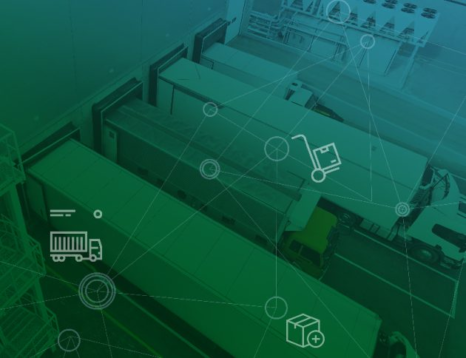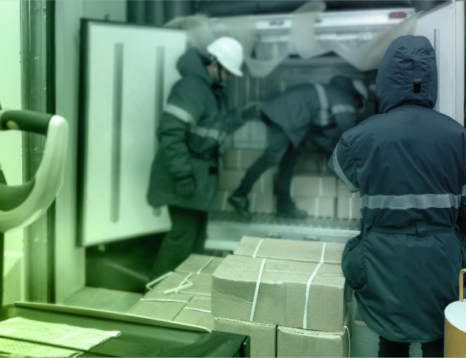Supply chain sustainability has been building up steam in recent years, as consumers are becoming more environmentally conscious and are expecting businesses to do the same. A growing number of companies are looking to build sustainability into their supply chain operations as it has direct impact on the environment as they try to compete with a growing consumer base. It is widely established that sustainable business can equate to profitable business. So, how can a sustainable supply chain benefit your business? Reputation Ensuring that companies focus on the planet along with their profits makes good business sense and enhances their reputation as a sustainable company. Profitability Thinking sustainably will help drive down costs and reduce expenditure in the long run, which will further help towards increasing the profitability of the firm. Innovation Establishing a sustainable supply chain enables companies to work with partners who provide environmental friendly products and services that foster innovation. There is no quick and easy path to sustainability, but the right solutions can help achieve a defined sustainable supply chain. Companies tend to account for waste and activity at every stage as part of their overhead. Therefore, having a comprehensive understanding of how sustainability impacts every unit of business including the supply chain is essential. An early step is to evaluate inventory suppliers, identify the most significant environmental and social challenges and then to prioritize efforts. Establishing and communicating expectations through a code of conduct is a critical step in involving every unit in the sustainability efforts. Simplifying procedures and eliminating wasteful practices contributes substantially in improving supply chain efficiency and reducing waste. It is important to focus on small, iterative improvements along with major changes to bring simplicity in the processes. Every change that reduces waste, speeds up delivery or enhances quality makes an incremental improvement to sustainability. Misalignment between supply and demand results in too much or too little production of raw materials, manufacturing of goods and distribution of products. This creates rework and excessive inventory which is a massive source of waste. Lead times are one of the greatest areas of waste within a company that should be controlled through process improvement. Good predictive analytics combined with machine learning can forecast likely demand and ensure more efficient supply and manufacturing processes. The warehouse is an important component of efficient sustainable supply chains. When it comes to creating sustainable value, there are several practices that warehouses can implement such as automating both warehouse solutions and management processes, increasing energy efficiency within a warehouse, and optimizing warehouse design. Some practices like smartly located inventory which can bolster efficiency and productivity or use of electric forklifts which eliminate the need for gas and oil in warehouse operations can revolutionize the way how companies adopt green approach to procurement and warehouse management. Route optimization as well as using renewable fuels considerably helps to reduce the environmental impact of transportation and distribution. Artificial intelligence can work with GPS devices to optimize shipping routes. Advanced analytics can even help update routes in real time, to take account of congestion and other issues. Through our expertise, we, at Radhakrishna Foodland have helped a leading QSR chain to tackle the problem of disposing off used cooking oil by converting it into biodiesel and used it in vehicles for transportation to stores. This helped the QSR chain to reduce misuse of used cooking oil as well as air pollution during transportation. The environment friendly solution added credibility to the brand and enhanced its brand image.
Companies and supply chain partners can create a highly competitive environment, by working closely together. The selection of the right partner is crucial as changing providers are cumbersome, costly and requires significant effort and can lead to costly inefficiencies. But how does one identify that the SCM partners are capable of such collaborations and possess the horsepower needed to push the organization forward? The choice is routinely based on factors such as cost, volume, and location, but assessing supply chain partnership performance is gaining strategic importance. 1. How is the operational performance of the SCM partner? SCM partners must have proper demand, sourcing and procurement, production, and logistics process management. Supply chain partners must be evaluated on the supply chain KPIs. “On time In Full (OTIF)” deliveries help to measure the efficiency and accuracy of delivery or logistics in the supply chain. It facilitates better collaboration with customers, ensures reliability of delivery and gain customer loyalty. The “Order fill rates” determines how one is managing the inventory levels efficiently to avoid stock-outs. Line item fill rates (LIFR) and inventory days are other essential indicators of how well the business can meet customer demands. 2. How is their technological competence? Higher technical Competence is crucial while looking for right SCM partners for continuous improvements, network optimization, demand and supply efficiency, flow of information, visibility, and data-driven analysis. For instance, a leading retailer adopted high-tech consolidation centers that utilized automated technology to enable increased volume and improve on-time-in-full delivery performance. With world-class logistic technology, the facility plans to be the most efficient consolidation center in the retailer’s supply chain. Partnering with Supply chain players with concrete IT infrastructure enables companies to gain an edge in the market and increase performance efficiency. 3. Do they provide integrated end-to-end services? An integrated framework is essential to tie the whole network together to reduce perennial supply chain challenges such as functional silos, poor transparency of knowledge and information and the inadequate formation of relationships. Supply chain partners providing Integrated services creates value through end-to-end supply chain solutions rather than a collection of functions which operate separately. 4. Do they foster innovation? Like all parts of business, new technologies, new processes, and new ways of thinking will make SCM partners stronger, more efficient, and more powerful. When supply chain partners are attuned in this way, they are much more effective at discovering and applying innovations that enhance competitiveness. The right supply chain partner must breed innovation right from streamlining processes, identifying new opportunities, and creating better ways to accomplish tasks for better partnerships. An e-commerce giant announced that the company was developing a drone-based delivery system that would be delivering products in locations within 10 miles of its distribution centers within just 30 minutes or less and would self-destruct during flight, if required, to keep people safe. The firm is doing everything possible to leverage latest supply chain innovations to maintain its place as the clear market leader. 5. How strong is their learning dimension? It is essential to choose supply chain partners who are adaptable and compatible in every aspect of business. Exploration, assimilation, and learning will assure a smooth functioning supply chain. Selecting partners with the ability and willingness to learn, and who want to create synergies will have a positive impact on performance measures and being a more market‐focused supply chain. 6. What are their organization values, culture, and strategies? How compatible the two organizations are in terms of fair dealing norms such as transparency in sharing production and scheduling data, flexibility, mutuality, or openness, can definitively help working relationships to endure. It helps to tightly align with the business strategy, making decisions that will accelerate growth and performance. It is essential that SCM partners understand the values, cultures, and strategies of companies for long term relationships. With over 30 years of experience, we at Radhakrishna Foodland possess a range of procurement and supply chain solutions to help enterprises in achieving their business objectives. Through our end-to-end supply chain services, we help companies to optimize their core expertise associated with the development of the products and create value for themselves, their vendors, and their end customers. Our Integrated Information Systems provide customized and design specific requirements to our customers and cater to every retail needs. We constantly innovate our solutions for better adapting to the ever-changing ecosystem we operate in and enhance customer satisfaction. Our data driven, software-based demand planning, forecasting and order management solutions offer a standardized platform to centrally consolidate all supply chain operations. Our results and solution-based attitude empowers our customers to swiftly improve their top & bottom line and establish a footprint in high consumption locations in India.
India is now the world’s third-largest startup environment, after the US and China, and development shows no signs of slowing. According to ResearchAndMarkets, the Indian foodtech sector will develop at a CAGR of 39% from 2021 to 2025, reaching INR 1,868.19 Bn. Growing consumer demand for an intriguing new food product necessitates increased production volume. Adding people and equipment to the operations and supply chain can help meet the rising demand. While sales volume increases, supply chain costs increase proportionately. A supply chain architecture that requires constant resource expansion to keep up with sales growth is unsustainable in nature. A scalable supply chain’s objective is to grow capacity while maintaining or improving efficiency, hence lowering supply chain costs per unit. We have outlined a few ideas for young food brands to build a scalable supply chain. We know from our extensive industry experience that not every entrepreneur wants to grow their business beyond a certain size or reach initially. Supply chain consolidation requires short-term sacrifices to scale the organization. If growth is a priority for the organization, it must commit to scaling, establish a reasonable growth objective, and develop a strategy and action plan to accomplish it. Standardize and automate processes While a startup must be agile and innovative, consistent processes help it scale. Standardized processes facilitate automation. Hands-on approaches and manual processes are difficult to scale without extra manpower and infrastructural resources. Standardization is the foundation of a robust supply chain management. Standardization specifies the manner in which a task or group of tasks should be completed. Every task needs scope, quality, and technique standards. For a competitive advantage, these rules can recognize and capture supply chain data using the appropriate tools or technology. With standardization, a part or process may be developed and measured more efficiently, resulting in a more sustainable supply chain that benefits all entrepreneurs. It saves time and money by keeping everyone on the same page. Automating back-office and operational procedures inside the supply chain is critical to cutting costs, speeding up time-to-market, and fostering innovation. A more technology approach will improve supply chain management, safety, and efficiency. Automating the back office reduces human error and streamlines processes. Modernizing the back office and automating will help reduce stress on people and processes. Outsourcing Given the necessity of these procedures, most companies concentrate on product development, fundraising, marketing, and sales. The lack of in-house logistics professionals creates a vacuum and a risk for startups. 74% of logistics leaders anticipate boosting logistics outsourcing spending in the next two years, according to Gartner Inc. A supply chain specialist may assist in filling that gap and acting as an extension of their team, providing the organization with a competitive edge. Outsourcing fulfilment to a 3PL saves initial capital. A startup usually manages fulfilment first to learn about the process and how to optimize it. From the start, a business must be hands-on, from packaging to returns. As the business expands and orders increase, outsourcing fulfilment may be more cost-effective and time-efficient. A supply chain specialist can help startups save money on warehouse space and personnel, source raw materials, move processed foods while maintaining product integrity, and most significantly, can guide startups with their expertise in the Domain. Expansion All food startups want to grow their business in a way that is sustainable. A Supply Chain Specialist can help a food startup scale by allowing for business and operational flexibility. Their fulfillment centers allow food entrepreneurs to expand without having to manage and operate their own facilities. A supply chain specialist’s national fulfilment network can also be leveraged to deliver orders as food startups develop new products and versions. A well-defined network allows start-ups to reach remote and potential markets faster. In addition to finding new sales channels, and an established Supply Chain Specialist may help organizations reach a larger consumer base. They can also help a food business better deal with seasonal demand while continually ensuring that the brand’s final product is transported to market in a temperature-controlled environment. A supply chain professional is better positioned to address any issues that arise during the transportation of the finished product. Collaborative Approach At the start of a food brand’s growth journey, often they struggle with their volumes due to variations in demand, which can be a cause of concern for them. Transporting low volumes of finished goods through a dedicated carrier can be expensive for a startup. Hence, it is advised for startups to opt for a more collaborative approach, where they can share their resources through supply chain specialists enabling them to transport variable volumes of products to different markets according to their demand. A collaborative approach will also give the food startups information about how a specific market is reacting to a product produced by another food brand, helping them string a better strategy for that specific market. A collaborative approach can save organizations 5-10% on costs and increase revenue by 7-10%, according to a report by McKinsey’s. Collaboration helps food brands to harness the collective intelligence of numerous stakeholders in order to plan and meet consumer demands. This primarily entails the sharing of real-time demand information among supply chain partners. Supply Chain as a Service (SCaaS) Investing in the Supply chain as a service module benefits startups by providing them with technology-driven, end-to-end supply chain management solutions. The SCaaS module is expected to grow at a 7.5% CAGR from 2018 to 2025, led by the expansion of mobile devices and internet penetration in emerging markets. This highly adaptable supply chain approach leverages a SCaaS provider’s experience and skills to assume responsibilities for production management, manufacturing, warehousing, inventory tracking, order fulfilment, and transportation. Finally, SCaaS provides the infrastructure and technology necessary to reduce the total value chain costs by offering customizable fulfilment solutions and adopting technology and automation to increase speed, visibility, and accuracy throughout a whole supply chain network. Around half of startups fail during the first five years of business, according to some estimates. There are numerous reasons for a startup to fail, but the majority of the time it boils down to...
The increased popularity of plant-based foods has created new supply chain problems, particularly given that many of these organic products are being introduced by traditionally non-organic merchants. Organic supply chains and produce suppliers have long followed regulations regarding produce handling, such as temperature controls, cargo tracking, and supply and demand planning software, to ensure that the product could be tracked from farm to table and, in the event of a recall, traced back to its source. However, for meat replacements that incorporate numerous plant-based ingredients, supply chain organizations that handle these products face unique food safety problems. The food industry is now debating how to store and handle meat alternatives, how to manage each ingredient in the product, and, most crucially, how to determine temperature controls or the source of infection. The popularity of plant-based food is further strengthened by a new analysis from The Good Food Institute stating that plant-based meat alternatives might account for 6% of worldwide meat consumption by 2030. Producing 25 million tons of product per year would be required in such a scenario. With its growing stature in the food industry, brands from the plant-based food segments would want to string together a supply chain for their mock meat offerings. As supply chain specialists, catering to the food industry for three decades, we suggest considering the below-mentioned few points that might help with outlining a supply chain for plant-based meats. Infrastructure From a high level, the meat alternative supply chain is shorter and much more compact than the meat supply chain. Combine that with the fact that plant-based meat alternatives can get to the market a lot faster than traditional meat. The labor factor can make a big difference. Saying that producing PBM requires the process called high-moisture extrusion, which means the infrastructure to process it requires to handle the processing at different temperatures. This means the infrastructure not only needs to be technologically equipped but also requires a skilled workforce to see through the intricate processes. The plant-based meat brands require temperature-sensitive storage that is close to their potential markets due to its low shelf life making the process of production and delivery faster. It is advised for upcoming plant-based meat brands to impanel with a supply chain specialist for their temperature-sensitive storage needs since they are well-equipped to handle products with low shelf life and temperature-controlled needs. With a specialist handling the supply chain for the plant-based meat brands, their well-defined routes to market and strategic presence can be leveraged as well. Workforce According to a recent Deloitte research, when asked about the skills that supply chain employees including those in the plant-based meat segment should possess, 73% of respondents say technical competence is extremely or very critical, and even more, 79% believe leadership and professional competencies are extremely important. The technological capabilities required now are those that enable supply chain experts to address complicated risk management or statistical modeling issues that might arise in a complex and evolving plant-based meat sector. Talent development is another area that needs focus since the plant-based segment is at a nascent stage, the resources employed within the industry will require to be educated about the segment and the processes. The bottom line is that when it comes to a niche category like plant-based meat, the workforce needs to be both technologically equipped to understand the processes that are defined and specific to the industry while adhering to compliance and being able to take quick action in case a tough situation arises. Central Information system A centralized system can be affordable and adaptable, allowing plant-based meat brands to respond to market changes at a faster pace. Brands in this segment that use a centralized system might soon become leaner and more efficient. A consolidated information system ensures supply chain visibility giving decision-makers precise supply chain visibility. This would make it easier for plant-based meat manufacturers to identify which ingredients originated from which farms and would enable them to act promptly if an ingredient went bad prior to processing. Through the use of technology such as barcode tags and RFID cards, it would also be easier to separate poor batches of components from good batches, so avoiding a crisis situation at the start of the supply chain cycle. Product and supplier management Supplier relationship management (SRM) enables the plant-based meat business to take a systematic approach to evaluate suppliers’ contribution and influence on success, identifying strategies to improve their performance, and building a strategic approach to carry out what has been found. Supplier lifecycle management (SLM) should also be implemented in the supply chain to enable an end-to-end strategy to manage high-value or strategically significant suppliers, from selection to relationship closure. The critical element of the process is to recognize the value suppliers may provide and to integrate those benefits into procurement processes. By implementing such methods, plant-based meat brands can mitigate risk, boost efficiency, reduce price volatility, and consolidate their supply chains. The unified information system enables fake meat companies to locate suppliers that may assist them in reducing delays, resolving issues of unavailability, and enhancing transparency and traceability. Temperature-controlled environment The supply chain’s difficulty becomes even more formidable when resources and products demand temperature control, as is the situation with plant-based meats. Because the shelf life of such products is frequently limited, the speed and dependability of the transportation and handling systems become even more critical. As consumers turn toward plant-based foods, product oxidation becomes an issue that brands within this segment face. As a product, plant-based meat is a refrigerated item that is susceptible to light oxidation, thus reducing its shelf life and quality. Delivering the texture and flavor consumers demand can be extremely challenging if the product is not properly protected from oxidation during the storage and transportation phase. To ensure product integrity across the value chain, different temperature regimes must be addressed independently in terms of storage, staging, and distribution. Additionally, the items must be continuously inspected and maintained – using proper monitoring and tracking systems. Due to the significant risk of non-conformance at handover...
Cold chain logistics companies provide distribution and storage services for products that are temperature sensitive. At present, India is the largest producer of milk in the world and is second when it comes to growing fruits and vegetables. India also produces marine, meat and poultry products. The Indian cold chain industry was valued at INR 1425.49 billion in 2020. It is expected that this market will grow at a CAGR rate of 14.6% during the 2021-2026 period.
Supply chain management is often acknowledged as a section that demands attention, integration & standardization. It takes strategic planning and smart execution to manage the smooth functioning of a business when it involves supply chain management. The level of difficulty advances a bit when the business keenly deals with perishables, food items and edibles. However, a minute change in the functioning of the business and outsourcing of supply chain management can ease the pain making the process hassle-free to a greater extent. Especially when it comes to the food service supply chain, outsourcing becomes prominent. Many supply chain companies in India, dealing with food & perishable edibles, find a need for systematic supply chain management. With top-notch cold storage facilities, flexible working & services with the fastest turnaround time; supply chain outsourcing highlights increasing the productivity of the business in all aspects. Outsourcing as a Business Aid Since outsourcing involves dealing with third-party for smooth functioning and integration of the business activities, it shifts the load from in-house management to the outsourced team. It mitigates the invested human hours, resources, & efforts with an easy functioning that works on command. Outsourcing is one of the most recognized things performed to lessen the in-house management pressure, thus, when aligned with supply chain management precisely complements the business with ample benefits. It plays a significant role in providing the business with a minimal overall cost, improvising the core competencies, fulfilling the customer requirements, focusing on a strong customer relationship & getting hands-on flexibility when it comes to maintaining a smooth supply chain. There are various ways supply chain outsourcing profits the business, it encourages smooth functioning and takes care of the additional effort that can benefit the business in another notable way. Various supply chain companies in India especially the ones that deal with the food service supply chain ought to switch to outsourcing if not done yet. It is significant for the business as it gives, Outsourcing the functioning of supply chain management gives an edge over competitors. This can be leveraged when it involves offering services aptly for customer satisfaction. Once you outsource the supply chain management, your operational costs reduce which effect in lowering the graph of overall costs. The resources saved over supply chain outsourcing will aid you with improving in-house facilities-in turn increasing revenue. Having a separate team that looks after the supply chain management shifts the burden from in-house teams and provides them with the flexibility to work at their pace and improve the core competencies of the business. The foremost & crucial factor that impacts the decision of supply chain outsourcing is the expertise the service renderer possesses. Supply chain management requires strategically planned execution and thus, is not an easy job. However, when you get industry experts with top-notch services to provide onboard, half of your job is done. The outsourcing company takes care of the important factors that aid the growth of your business. The motive of having a supply chain management is to maintain the balance between demand & supply. Outsourcing the supply chain gives an insight into the demand and supply, allowing the business to learn about the backsets and firmly set a strong foot to leverage this point against the competitors. Businesses Fail to Manage the Supply Chain Thoroughly as it Takes Expertise to Manage. Supply chain management is an essential part of business, hence needs to be taken care of keenly. Outsourcing works like a complement that benefits the business with end-to-end integration and smooth functioning. As a consolidated end-to-end supply chain development, outsourcing is not just a requirement but the ultimate need for smooth business functioning. Looking forward to outsourcing your supply chain management? Let’s talk and collaborate for the smooth functioning of your business!
CategoryBlog March 25, 2022 What Is Cold Chain Logistics? Planning, organizing, integrating & safely implementing any temperature-sensitive product in the most secure manner over a long distance keeping up with the right temperature & humidity requirement with the help of the right transport and equipment is the integration of cold chain logistics. Temperature-sensitive products like food items, biological specimens, liquid beverages, perishable edibles, pharmaceutical drugs, etc. Also known as chill chain logistics, cold chain logistics take care of the end-to-end fulfilment. Many supply chain management companies offer temperature controlled logistics in India. With various cold supply chain companies in India, these temperatures controlled logistics have a great impact on every stage of the product. Importance of Cold Chain Logistics Cold chain logistics is significant for the integrated fulfilment of temperature controlled products. Different products require different temperatures, and to keep up with the varied requirements it is necessary to get on board with cold chain supply companies in India. It assures end-to-end fulfilment, takes care of the product throughout the process, ensures quality and perfectly integrates the logistics requirements. However, as much as it is important to partner with suitable logistics companies in India, it is also integral to check the working of cold-chain logistics and figure out whether it is the optimum logistic solution for the business. Essentials of an Integrated Cold Chain Logistics Goods and products have to be stored before the process of distribution and final customer. While for temperature controlled logistics in India, it is very important to check the temperature controlled storage as it defines the place where the goods will be stored before distribution till the final destination. Temperature control, management, fluctuations, power outages and other technical issues can cause deterioration of the quality of the product causing spoilage of the goods. It is important to check for the technologies used, to analyze the damages & speculate dangers along with weighing the uncertainties before choosing any one particular from the logistics companies in India for the end-to-end fulfilment. Transportation makes an integral part of the end-to-end fulfilment and cold chain storage management. It takes care of the distribution of the goods from the storage or warehousing to the final point. Temperature-controlled goods require temperature controlled transport and a minute problem can cause heavy damage. Temperature fluctuation or power outage, changes in humidity or overloading of the vehicle are some common problems that need to be addressed while picking a way of integrated fulfilment for cold chain management. Choosing the system with an alarm facility will work as an added advantage & help you figure out the uncertainties as & when occurring. An essential part of any management process is qualified & experienced staff. Well-trained staff ensure the smooth functioning of the operations. Updated & knowledgeable staff fulfil the requirement & keep up with all the necessary processes for the integrated fulfilment. A staff well-learned with the operating procedures can keep a track of safe end-to-end fulfilment making the operation of cold chain logistics. Good packaging keeps up with smooth functioning during the temperature controlled process. Efficient packaging of all the products transported via the end-to-end fulfilment process ensures safety, security & smooth distribution. Before admitting the products & goods in the temperature controlled storage; it is mandatory to check the packaging. Apart from that, it is also significant to choose a cold chain logistics company that adheres to safe packaging for a smooth operation. The smooth functioning of the cold chain logistics operates on a cycle that involves these essentials like cold supply products, qualified staff, temperature-controlled warehouses, efficient packaging, temperature-controlled transport, temperature-controlled containers. RK Foodland, with its expertise in the field and years of experience; strives to offer the best end-to-end fulfilment for all the temperature controlled products. With integrated fulfilment of the cold chain logistics management; RK Foodland prominently commits to adhering to all the industry standards, advanced technology and smart results. Looking forward to partnering with a cold chain logistics management company for an end-to-end fulfilment of the supply chain, Let’s talk!
CategoryBlog March 21, 2022 Businesses operating on products require an integrated fulfilment system to balance the equilibrium between demand and supply. However, as much as it is crucial to set up an end-to-end fulfilment process, it is also important to figure out how to put the system in force. Getting experts in the field on board for the task will help the business maintain a smooth flow, hence outsourcing supply chain management for a smart logistics solution yields good benefits for any product-oriented business. Especially when the business involves food products & delivery, outsourcing the supply chain management for end-to-end processes rendered by industry experts becomes the best choice. Outsourcing logistics as supply chain assurance for smooth functioning lessens the burden from in-house teams giving them more time to focus on internal operations and business growth. However, every time a business outsources supply chain logistics management, the quality assurance questions keep the management in a dilemma. Analysis to Ensure End-To-End Fulfilment Integrated end-to-end fulfilment by supply chain management ensures quality assurance in many ways. With a smart approach of following the quality of supply chain management, businesses and management can keep a track of the process along with maintaining a smooth flow of the distribution. As a practical approach to tracking the supply chain sustainability, the analysis of the supply chain is essential. The analysis requires examining the end-to-end fulfilment process & its distribution with proper diligence. The management of grievances with respect to the process and the indemnification or insurance in case of uncertain events arose during the fulfilment. Finding a reliable way to ensure the supply chain assurance and integrate it with a smart, positive & transparent approach. Smart Ways to Ensure Integration Quality & Supply Chain Sustainability There are various ways to track the quality of supply chain sustainability and its end-to-end fulfilment. Collaborating with the parties involved to track the process and transparency commits quality and assures of the responsibilities. To keep a track of smooth functioning by managing orders, processes & their execution irrespective of the status of inventory will keep the process transparent for every party involved. Monitoring the process from end-to-end integration of the supply chain eases the discrepancies or uncertainties involved or will occur in near future. It helps you monitor and ensure supply chain assurance. Projecting real-time transport & transit data assures the supply chain sustainability keeping it real & transparent for all the parties involved. It assures a smooth end-to-end fulfilment in all aspects. Building a stable relationship with suppliers becomes necessary to keep the management smooth & error-free. It lays a strong foundation, making the management easier & ensuring the supply chain assurance for smart logistics & fulfilment. Replacing the outdated systems and processes with new, updated & equipped ones will keep the quality maintained. Along with giving good results, this will also help with an edge over competitors in terms of better facilities. For all the quality checks & ensuring the supply chain assurance; it is crucial to outsource the services with industry experts having experience of years. RK Foodland, with its top-notch services for end-to-end fulfilment, provides supply chain sustainability along with a smart & integrated fulfilment of end-to-end logistics. Looking for the best logistics solutions for end-to-end integration of the supply chain, you are at the right place. Let’s talk!
With smart upgrades and advancements in technology in all industries, supply chain management is no exception. Operating in order to sustain a smooth functioning of business and maintain an efficient flow of end-to-end integrated supply chain; it becomes significant to keep up with all the emerging trends of the industry. Many supply chain companies in India offering a complete end-to-end fulfillment adheres to the trend, making it beneficial for all the parties involved. However, missing these trends may not be benefiting, in fact, loss-causing. Thus, while finding a perfect solution to integrate an end-to-end supply chain for the logistics management of your business, it is important to learn, understand & implement the intelligent trends that hold the power to transform your business & promote the smooth functioning it in all aspects. Here are some trends that are predominantly required for the supply chain to maintain sustainability in all aspects, Block chain has emerged drastically as a part of the technological revolution recently and has impacted all the major industries in a very significant way. With ample essential uses in supply chain management, block chain technology can now be used to transform the dynamics of supply chain logistics in various aspects. It maintains transparency in all the processes keeping it all clear for all the parties involved to keep a track of the supply chain. An essential part of supply chain logistics & management, transparency & accountability play a very significant role. Digital supply chain management has become possible with the help of block chain technology as it keeps track of the data without manipulating it in any way. Artificial Intelligence is acknowledged as an integral part of the industry now and has up scaled drastically with time. With various areas implementing artificial intelligence for smooth operations, supply chain logistics & management are improving with it too. Used to figure out potential perfect routes, manage functions & systems, digital supply chain work efficiently with the help of artificial intelligence. The innovations and technological advancements have now made it possible to manage a systematic end-to-end integrated supply chain with smart integration. It manages the end-to-end integration by using augmented reality for warehouse systems, optimized software, robots, etc. The warehouse being an integral part of supply chain logistics, the trends in supply chain management & logistics have significantly transformed the operations these years. As a key trend that keeps the supply chain smartly integrated, using advanced technology & robotics in this field enables storage optimization, smart order processing, inventory management, loading & unloading of the stock, etc. With advancements still in process, warehouse robotics can also see driverless vehicles & multifunctional robots in near future as smart trends impacting the digital supply chain and transforming the industry. Management & security are essential for any supply chain logistics; hence it is important to be up to date with the trends & implement them for smooth operations. Increasing as a macro trend, it takes care of the uncertainties that breach security and harm the management. With continuous intelligence, end-to-end fulfillment of supply chain logistics has improved and as an important aspect, it uses the technology to improve the functioning of the management system. The advancements in technology have now made it possible to keep a real-time supply chain track with complete visibility & transparency. As a problem that hindered the smooth functioning of the business, businesses have eliminated the traditional form of management when it comes to keeping a track of complex working & operations manually. With clear data analytics, end-to-end fulfillment & an integrated system that works like an important factor in supply chain logistics; analytics advancements have changed the way supply chain management, logistics & end-to-end integrated operations worked for businesses. More than just an intelligent trend that keeps the supply chain management and logistics integrated; globalization has brought the market & industries closer to global trends & updates. The improvisation in the working of the business, transportation facilities, management & integration, along with upscaling the area of operations are all results of globalization. With advanced technologies implemented in every aspect of business, it becomes vital for the supply chain consulting companies to maintain the functioning adhering to the global trends in order to keep up with sustainability & smooth functioning of the supply chain management. While finding a perfect supply chain partner to integrate the end-to-end logistics; it is important to scrutinize all the important factors thoroughly. Supply chain companies in India that work in compliance with the smart & intelligent trend of the industry can benefit you in several ways, multiplying your RoI being the most important benefit. If you are looking for an innovative & intelligent solution to integrate your end-to-end supply chain, RK Foodland can help you with its top-notch services. With years of experience & industry expertise, RK Foodland makes the perfect supply chain partner helping your business grow & flourish in all possible ways. Looking for a perfect supply chain solution for your business? Let’s talk!
Food Supply Chain Leadership Forum’ is an initiative by Radhakrishna Foodland aimed at creating an exclusive engagement platform in the Indian food supply chain ecosystem.
The theme for this event is ‘Women Leadership in Supply Chain’. Join us for some interesting and enlightening discussions around:







